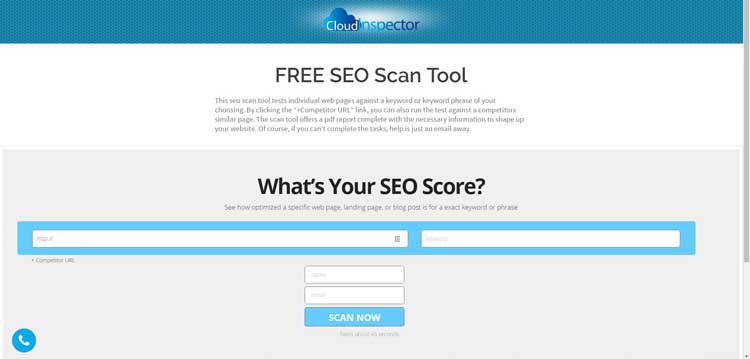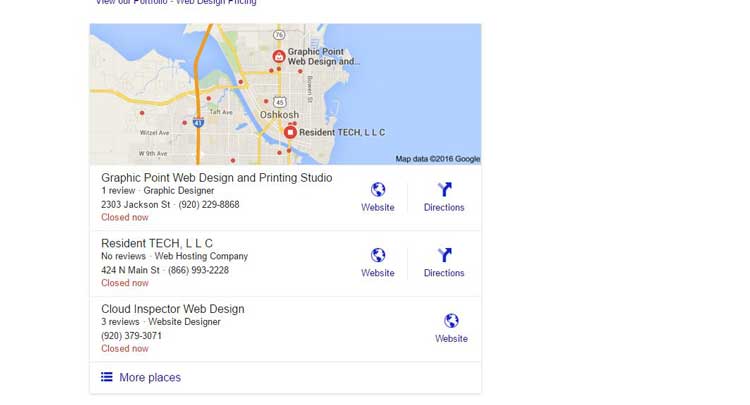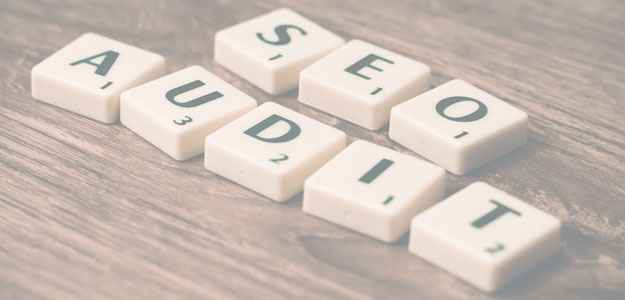When any small business starts looking at website creation or updating, one of the first things they’ll hear is that they need better seo than the next guy on Google, Bing, or Yahoo.
SEO stands for Search Engine Optimization and is the act of attempting to improve the ranking of a website(page) for a given term. Often location is a factor, as many businesses operate locally. Done properly, SEO is definitely something every business wants to have in order. Regardless of ranking, competition, budget or whatever, you want to make sure that the content you put online is optimized to it’s potential. I mean, you care about the quality of the product your company puts out right? Online shouldn’t be different. If you pay for ads, off-page SEO, or social media management but don’t optimize simple things like your company pages or posts, you waste money, plain and simple.
You Want Higher Ranking?
You might be asking, rank higher for what?
All the major search engines have their own criteria, or algorithms, for ranking a page. These rankings then determine where your website will show up in search results. Your goal, and everyone else’s as well, is to show up on the first page of results when people search for particular key words related to your product or service…at least in your vicinity or market to start.
Do You Need Better Seo?
It’s a fact that 75% of users never look past the first page of results. If you want your business to be found by the most people, your goal is to get in that first page. The other fact to be aware of is that 70-80% of users ignore paid ads, so relying on ads will only give you access to 20-30% of your potential customers!
This is why you will hear of big-name companies investing thousands upon thousands of dollars to optimize their sites or particular pages.
The Key Algorithms.
So here is the hard part. The algorithms the major search engines use to rank sites often change. Different search engines also use different algorithms, although most businesses try to optimize for the biggest – Google. This is why it can be very useful to have someone regularly managing your site rather than just having it built by someone who never looks at it again. As SEO algorithms change, your web developer can update your site to meet those changes, helping you beat competition who may not be so up-to-date.
Currently, Google takes in a variety of data to determine site ranking, in fact it is over 200 different variables that make up the algorithm. Brian Dean of Backlinko does an incredible job of laying it out here for those savvy enough to go through it.
What Can You Do?
For the rest of us, here is where you can focus your time, within the pages of your own website. Keep in mind, these aren’t placed in any particular order. All are important to consider with any asset you place on your site. This is your staying power, why not do it right? Going back to fix it would be a nightmare on a site with any considerable amount of assets. Things like having an image or page named “?p123” or “img2345846” simply won’t cut it in today’s web market.

- Keyword Phrases – every page should have a topic. Focus only on that and this happens by itself. Don’t “try” to incorporate keywords, they will just be present in quality content.
- Page URL – this is the page title. For a homepage, obviously this is the domain you chose. All other pages will have something added to the end. Make that something relevant to the content of the page (IE – the keywords). If the page is about your plumbing repair aspect of your business, that should be the name of it. Blog posts should have longer titles and focus on “long tail keywords” – basically a phrase centered around your page focus. How to repair your leaky plumbing pipes would be an example.
- Page Title – This is the Google showing page title, make it good and unique every time for a blog page. For a homepage, focus on your location your main niche. Interior service pages will use location and the given service.
- Meta Description – This is the small text below the page link in a Google search result. It will be generated if you don’t specify your own unique verbiage.
- Image Alt Text – try to target a keyword without spamming. If the image is about a block of content, make the text relevant to the image and associated content. Again, the keyword (context) will be naturally present.
- Internal Linking – if you can link to another page on your site to clarify a point, by all means do so. Don’t link out with an exact match for your keyword though, unless if it makes sense (like for the name of a service).
- External Linking – can you link out to an awesome reference that helps someone even more than you, or in addition to? I did above with Brian’s post and I tend to a lot in this blog as it grows. Google finds it easier to associate your blog or website with a niche if it connects with others in the same realm. Also, it shows that you are truly trying to help your user – that’s the goal here! In the case of this mention, that post has over 11,000 tweets, shares, and likes. I’m pretty sure that means it’s a really good resource and I just turned it on to you…see what I mean? By the way, if you are already advanced, you belong there too.
- Local Relevancy – Use the name of your location if you have a brick and mortar establishment or work in a given service area. It just gives search engines one more reason to associate your business with a given location. Using schema markup to add your business NAP to every page is also a great idea.
Need To See Where You Are?
If you want an even closer breakdown of what can help you at the page level, consider using the SEO audit tool in the sidebar of this blog, or at this url. The tool is free and it tests 1 page at a time, against a keyword (or phrase of course) that you enter. Watch for typos or the results are worthless (I see it). It provides many more key points than this for those that know their way around and can optimize every point. Just keep in mind, some are much more important to the average web page than others, namely those mentioned above.

Need Better Seo Using WordPress?
This can be difficult if you are using WordPress without a plugin. I would recommend Yoast SEO, as it has the most features and makes it easy for anyone to tell if your page is optimized. It uses a “stop and go” light scenario with red being un-optimized and green of course being good to go. It is free from the repository.
Why is Local Important?
You can also include local address information on your page, which is a huge help to small businesses. Google now returns search results most relevant to an area. Consequently, someone searching for plumbing repair is mostly going to return plumbers in your local area, which makes it much easier as a business owner since you are not competing with some national repair agency that has tens of thousands of dollars to spend on SEO and ads. We have all seen an example on mobile or desktop search for any local service. In the example I chose “oshkosh web design” to see if this website would rank in Google’s business page map based search. Notice how it shows a review count but no stars…once you have 5 reviews, your stars will show

Other Free Off Site Tactics.
Connecting with other businesses, big and small, will also be a huge boost for your SEO and something you can do as a business owner that will help your site above and beyond web development. Becoming part of a business community always has it’s rewards. Guest blogging, earning links, launching products and press releases all come to mind, yet the list of things to boost your brand are endless. Many things you read about online marketing strategies are outdated and penalized by Google today. For now, let’s focus on what you control, which is your own website. We can expand on additional avenues of search traffic another time. If you subscribe to this blog, you will get every future thought that gets shared with the world, hot off the press. Apply what you learn and you will no longer need better seo.
Always Think About Your Customer!
Putting it all together, Google’s goal is really the same as yours, to build the best user experience possible so that people continue using Google’s, or your, service. The best way to do this is to create very user friendly websites that help people find what they’re looking for, which your web developer will take care of. The creation of content and building of shares around the web is something you can try to do yourself, or hire an SEO, Social Media, or PR firm to help out with. The more you create content that your customers love AND that is easy to find, the better your site will do in terms of SEO.
It’s a pretty nice cycle when you think about it, more customers leads to a better site ranking which leads to more customers and on and on. The sooner you start, the sooner your customers will grow and site rankings will improve!
You know that you need better seo, and now you know how to get there. Let me know if you have any questions with anything, I would be happy to help.

